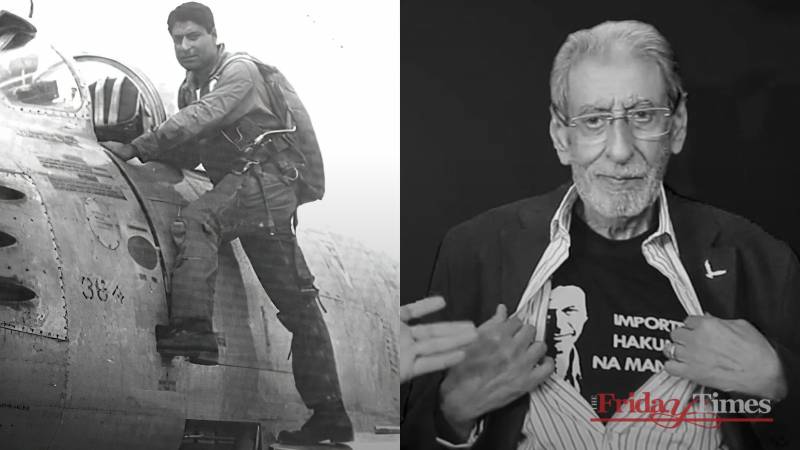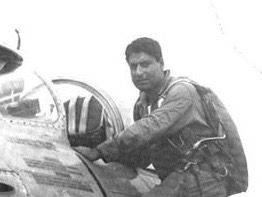Air Commodore Sayed Sajad Haider, my grandfather, was a man whose life seemed to stretch beyond the confines of ordinary existence. To speak of him is to honour a legacy marked not only by his achievements as a fighter pilot but also by his quiet resilience and the deep love he offered to those closest to him. Though the title of “fighter pilot” might come to mind when his name is mentioned, his essence transcended the uniform he wore and the missions he flew. He was a man who carried the weight of history, the quiet wisdom of a life well-lived, and the undeniable love of his family and community.
Among those who knew him, there was a deep respect for Aba’s leadership. He had a rare ability to remain calm under pressure, even in the most chaotic moments. Stories from fellow pilots recount how he navigated difficult situations with precision, always focused, always in control. His leadership in the Sherdils squadron—an elite group of fighter pilots known for their prowess in the air—was legendary. But beyond the technical brilliance, it was his ability to inspire trust and confidence in his team that set him apart. He didn’t lead by orders; he led by example. His quiet confidence, his humility, and his unwavering resolve made him a figure of admiration in the PAF. The men who served with him often speak of how his presence alone was enough to bring a sense of calm to the most intense operations.
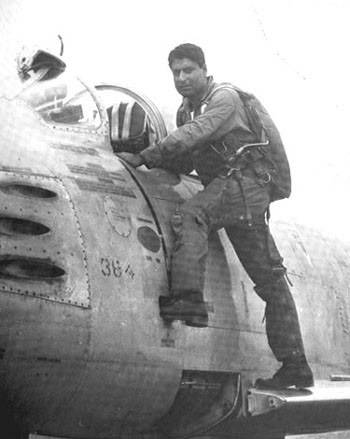
Aba’s legacy is not only written in the pages of his book or the stories of his remarkable life and career but also in the lasting impact he had on the land he cherished
One of the most significant moments in his autobiographical book, Flight of the Falcon: Demolishing Myths of Indo-Pak Wars 1965-1971, is when Aba reflects on his decision to stand up to General Zia-ul-Haq and resign. In the face of political pressure and growing authoritarianism, his act of defiance wasn’t impulsive but a carefully considered stance against a regime he saw as unjust. Aba chose to prioritize his integrity over career advancement. His resignation was a bold affirmation of his principles, a reminder that doing what’s right often requires great personal sacrifice, even when the consequences are uncertain.
Through this moment, the book captures not just his career but the essence of the man he was—courageous, unwavering, and deeply committed to justice for Pakistan. It is no surprise that Aba was awarded the Sitara-e-Jurat medal for his service, a recognition of his bravery and unwavering commitment to his country. During the 1965 war, his actions earned him the title of the "Saviour of Lahore," a testament to his leadership and valor in the face of adversity.
Aba’s legacy is not only written in the pages of his book or the stories of his remarkable life and career but also in the lasting impact he had on the land he cherished. The kinoo trees he planted stand as living monuments to his vision—his belief in nurturing something that would outlast him. The scent of citrus, the feel of the earth beneath my feet, and the sound of leaves rustling in the wind are inextricably tied to his memory. The farm wasn’t just a piece of land; it was his way of teaching us the quiet power of patience, the importance of growth, and the joy of watching something flourish from the seeds you sow. The land, like Aba, was a place of comfort and connection. We spent many hours and afternoon lunches with him there, learning about the power of persistence and the reward of seeing something grow under your care.
There were also the dogs. Our house was never without them, and Sajad Haider’s love for each one was evident. His connection to the animals was profound as if he understood the beauty in loyalty and simplicity. They were never just pets to him; they were companions, and through them, we learned the importance of unconditional love and care. He treated them with the same tenderness and patience he reserved for those he loved most. This ability to nurture, to give so freely of oneself, was something I would carry with me throughout my life.
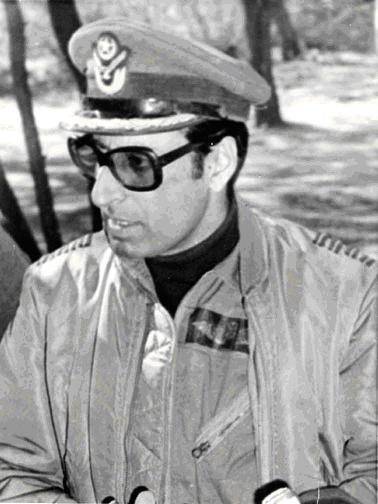
Even in the quieter moments, Aba’s presence was felt. Our walks through E-7 are some of my favorite memories, even when passing AQ Khan’s house (who was under house arrest at the time) added a certain weight to the atmosphere. Aba’s steady presence made those moments feel lighter, and through them, I came to appreciate the strength of quiet confidence and patience. Aba was a man of few words, but his actions spoke volumes. I remember the way he would sit with his cigar, smoke curling around him in slow, deliberate rings, with Hadiqa Kiani, Cesária Évora or Emma Shapplin playing in the background. There was no rush in him, no need to fill the space with idle chatter. Instead, his very stillness was a lesson, teaching us that sometimes, the most important things are the moments of peace we carve for ourselves.
And then there was Marbella, the summers we spent in Spain, bathed in golden sunlight and the cool breeze of the Mediterranean. Those long, lazy days by the beach, the laughter and conversations under the warmth of the Spanish sun, are memories etched in my mind. In Marbella, I saw a side of Aba that was different from the man who had spent so many years in the cockpit or who carried the weight of history on his shoulders. Here, he could be present in a way that felt timeless—no longer just a soldier or a patriarch but a man who cherished life’s simplicity. Walking by the sea with him, listening to his stories, and feeling the weight of his wisdom settle beside me—it was here that I learned the true meaning of relaxation, of living in the moment.
In his study, surrounded by the artifacts of a life well-lived, I realised how profoundly he had shaped me—not just as a soldier or a grandfather, but as a person who had lived with integrity, passion, and humility
We didn’t always agree, of course. Like any family—especially members of a wide generational gap—we had our disagreements. But even in those moments of tension, there was a deep understanding that transcended words. Aba never sought to control or diminish our voices. Instead, he sought to teach, to guide, and to make us stronger in the process. His life, full of contradictions—tender yet fierce, grounded yet capable of soaring—was a lesson in itself. In his quiet, unwavering presence, I learned that love isn’t just about agreement; it’s about understanding, respect, and the willingness to stand by one another or at least to forgive, even in moments (or periods) of disagreement.
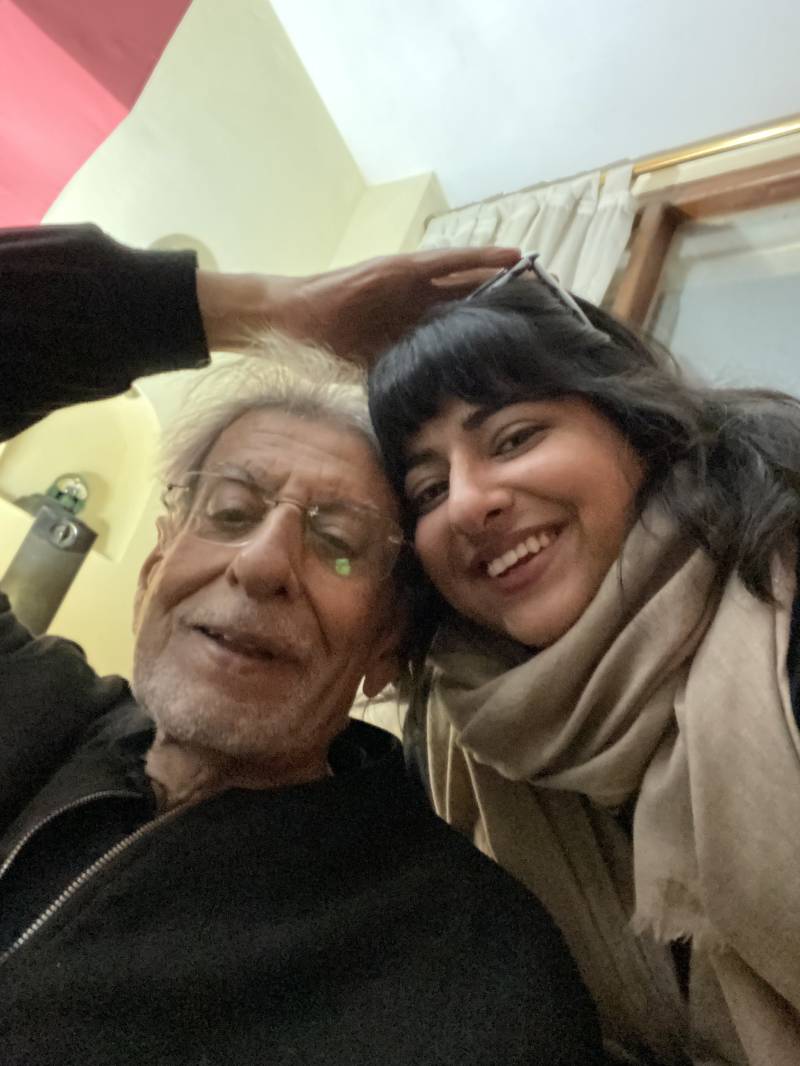
The last time I saw him was last year, November 2023. I walked into his study, a room dedicated entirely to his life in the Air Force, where he had displayed the mementos, the photos, and the books that chronicled his journey. It was here that I saw him, passionate as ever, speaking with that same fire in his eyes that had led him through the years. Despite the passage of time, the sharpness of his spirit remained undiminished. At that moment, I felt such deep affection for him—an affection that spoke not just through words but through the silent understanding we shared. He may have been older, but there was a certain timelessness to him, an enduring energy that will forever be etched in my memory.
In his study, surrounded by the artifacts of a life well-lived, I realised how profoundly he had shaped me—not just as a soldier or a grandfather, but as a person who had lived with integrity, passion, and humility. I cherished that moment of closeness, of connection, knowing that in that space, I was seeing him not as a figure from history but as my grandfather, My Aba.
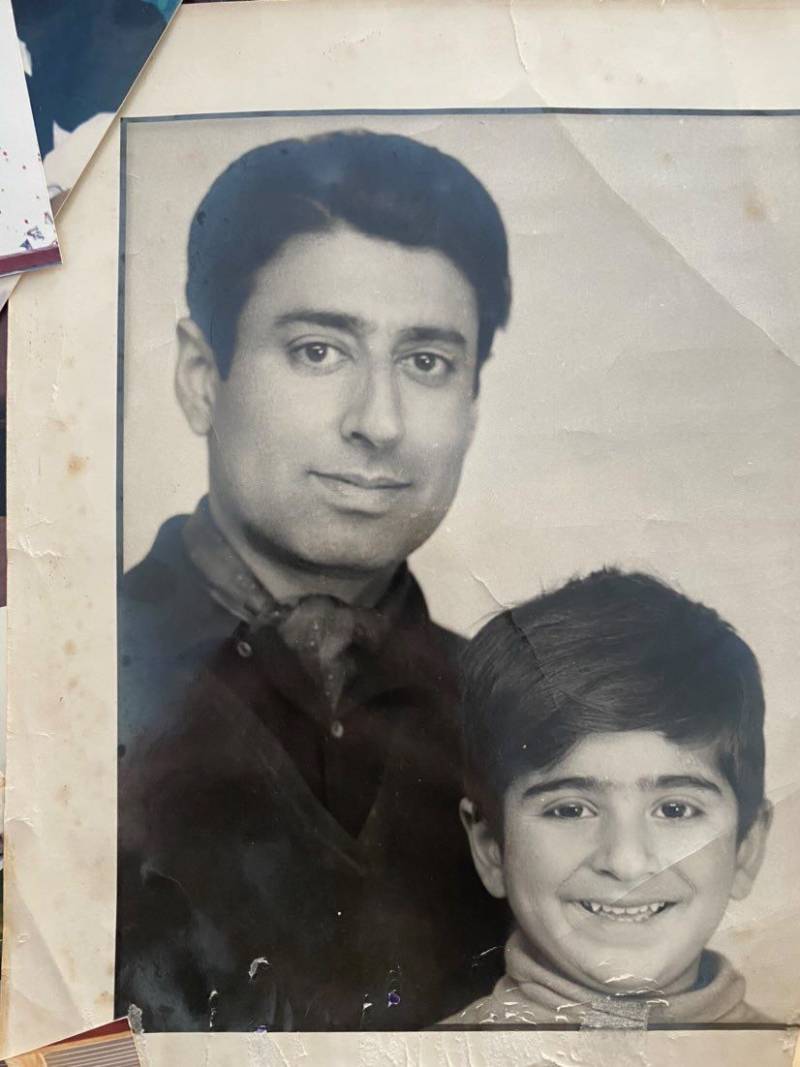
Sajad Haider, my Aba, lived a life that was both grand and humble, fierce and tender. Though he is no longer with us physically, his presence remains in every tree he planted, every creature he loved, and every memory we cherish. Perhaps what stands out the most about Aba was his ability to live with a kind of quiet dignity. He was not a man who needed words to make his mark; his life, his service, and his love spoke for themselves.
Thank you, Aba, for the lessons you gave, for the love you offered, and for the strength you embodied. You are forever in my heart, and your legacy will continue to live on, not in the things you left behind, but in the ways we carry you with us every day.


